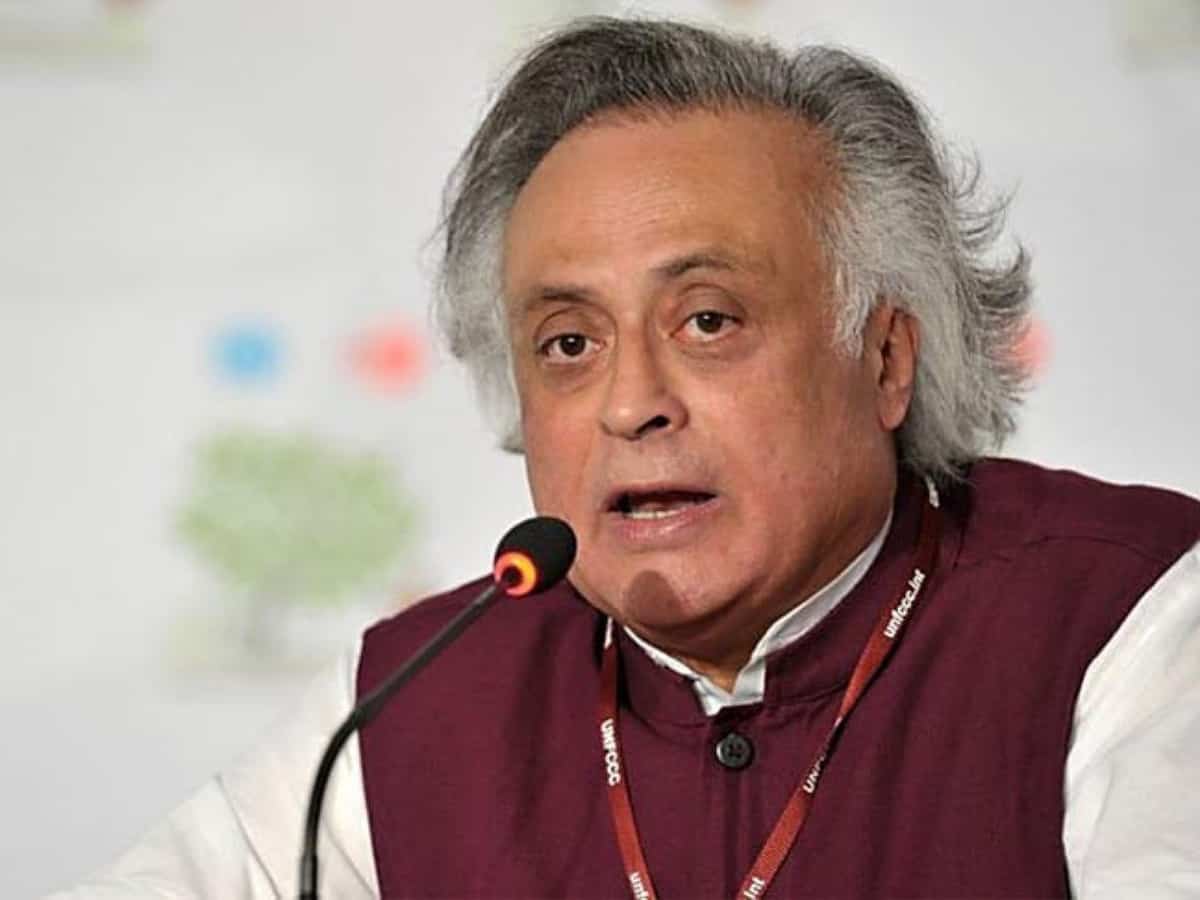
New Delhi: The Congress on Tuesday alleged that India’s farmers have faced 10 years of “anyay-kaal” with the agriculture ministry being a “complete failure” in every basic responsibility, and asserted that farmers now need the party’s “Kisaan Nyay” guarantees.
Congress general secretary in-charge communications Jairam Ramesh claimed that of all the various “failures” of the Narendra Modi government, the “sheer incompetence and maliciousness” of the agriculture and farmers welfare ministry is among the most harmful and self-evident.
In a detailed post on X, Ramesh listed the various “failures” of the government in ensuring development of farmers.
He claimed that the “eight major failures” of the Modi government’s agriculture ministry are — “extortionate GST on agricultural inputs, non-utilisation of ministry funds, failure to double farmers’ income; inadequate MSP increases and non-implementation of the Swaminathan Commission Report, failure to diversify crops, dependence on imports for edible oils, failures on trade policy, and rising indebtedness and farmer suicides”.
Elaborating on the issue of the Goods and Services Tax (GST) on agricultural inputs, Ramesh alleged that the design of the GST has been completely anti-farmer.
“Due to GST, nearly every input a farmer requires has gone up in price. In 2004-05, in the UPA’s (Congress-led United Progressive Alliance) first budget, excise duties on tractors were abolished. However, under the GST, the tax rate on tractors has been increased to 12 per cent, while the GST on tractor tyres is at 18 per cent and spare parts at 28 per cent,” he said.
Meanwhile, fertiliser has been taxed at five per cent under the GST, in addition to the high GST on fertiliser inputs like ammonia at 18 per cent, Ramesh said.
“At a time when farmers are already struggling with rising input prices, adding high GST levels is nothing but malicious,” he said.
Ramesh alleged that the Modi government makes exports of agricultural products more difficult, while allowing cheap imports. This hurts India’s farmers deeply as they are not only not getting fair market prices for their produce, but unpredictable export bans mean they cannot plan their crops properly, he said.
“The prime minister loves to announce huge numbers, saying lakhs of crores are being spent on one scheme or the other. However, over the last five years, over Rs 1 lakh crore allocated to the Ministry of Agriculture and Farmers Welfare has been surrendered after non-utilisation. Each year, around Rs 20,000 crore meant for farmers is not reaching them,” the Congress leader alleged.
Ramesh said the biggest broken “Modi ki guarantee” made to India’s farmers since 2014 was that he would double farmers’ income between 2016 and 2022.
“For this to happen, farmer incomes would have to grow by over 12 per cent each year for all six years. However, as per the latest NSSO SAS report, real farm income grew just 2.8 per cent a year from 2015-16 to 2018-19. Note that this shockingly slow income growth was all pre-pandemic, so the prime minister cannot blame Covid for this failure,” he said.
Ramesh also pointed to inadequate increases in minimum support price (MSP) and the non-implementation of the Swaminathan Commission Report. While the UPA raised MSP in wheat by 119 per cent and paddy by 134 per cent, the Modi government has raised it by just 47 per cent and 50 per cent respectively, he said.
“Despite many promises by Mr Modi before 2014 on the implementation of the Swaminathan Commission (report), MSP today remains way below the C2 Cost+50 per cent formula,” he said.
The need to shift from paddy and wheat to millets, pulses, and fruits or vegetables is evident, he noted.
“It is absolutely critical for India’s water table, power costs, climate resilience, health and nutrition, to reduce stubble burning, and to increase farmers’ income,” Ramesh said.
“Unfortunately, the Modi government is taking us backwards on crop diversification. The farm area under paddy has increased by two million hectares since 2014. Meanwhile, for all the posturing and advertising the prime minister has done on the importance of millets, the farm area under millets has decreased by three million hectares since 2014,” he said.
Ramesh also raised the issue of dependence on imports for edible oils, saying that “with over 56 per cent of our edible oils coming from imports, amid major price fluctuations, there is an urgent need to increase oilseeds productivity in India and attain self-reliance”.
“However, since 2014, the production of oilseeds has grown at just 1.8 per cent a year. No wonder that NABARD has projected that India will remain import-dependent until 2031,” he said.
“The combination of all these anti-farmer policies has led to two tragic outcomes. First, farmer debt has skyrocketed. Since 2013, outstanding loans have grown by 58 per cent, as per the NSSO. Over half of our farmers are in debt. Second, since 2014, we have seen over one lakh farmers die by suicide,” Ramesh said.
He alleged that India’s farmers have faced 10 years of “anyay-kaal” and the agriculture ministry has been a complete failure in every basic responsibility, unable to bring any progress in farming. “It has overseen a decade of despair for ‘kisaans’ (farmers). What India’s farmers need now are the five historic ‘Kisaan Nyay’ guarantees announced by the Congress,” he said.
Ramesh also listed the five gurantees, including legal guarantee to MSP at the Swaminathan formula and a standing loan waiver commission for farmers.
The party has also promised guaranteed insurance payment within 30 days of crop loss and a stable import-export policy to benefit farmers. It has also promised no GST on inputs for farming.
